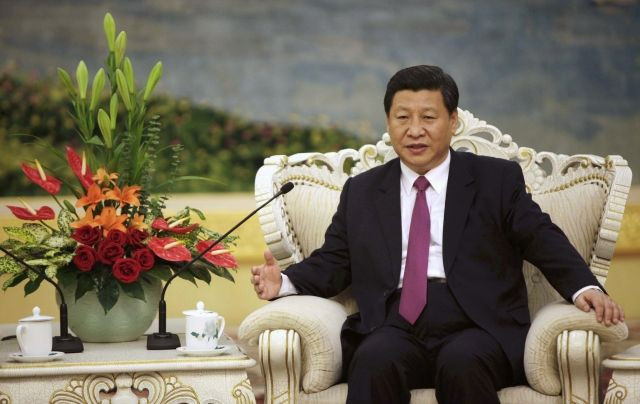Xi Jinping Takes Office As China’s President

Xi Jinping, leader of the Chinese Communist Party, took charge as the president of the world’s most populous country on Thursday, succeeding Hu Jintao.
Some 3,000 delegates attended the 12th National People's Congress, the annual parliament session, where they voted at the Great Hall of the People in Beijing. Xi was elected by 2,952 votes to one, with three abstentions.
He was named secretary-general of the Communist Party on Nov. 8 last year, when he was made leader of the Central Military Commission, the country’s chief military body.
Li Keqiang is expected to be named the new premier to succeed Wen Jiabao in an NPC session on Friday.
Li Yuanchao, a close ally of Hu and a member of the Political Bureau of the CPC Central Committee, was elected as the vice-president.
Xi Jinping, 59, is the son of a hero of China's revolution, Xi Zhongxun, who served as a minister under Mao Zedong, according to his official biographical sketch by the state-run Xinhua news agency.
Xi’s father fought alongside Mao in the revolution that brought the party to power in 1949 and went on to serve as vice-premier until he fell out of favor with Mao’s administration. His reputation was rehabilitated after Mao’s death in 1976 under reformist leader Deng Xiaoping.
His father’s rise and fall during Mao’s rule caused extreme lifestyle changes for Xi during his childhood and youth. After enjoying an elitist life in Beijing as a child, Xi spent his youth in the remote community of Liangjiahe in northwest Shaanxi province working with peasants and living in a man-made cave.
Xi studied chemical engineering at Tsinghua University in Beijing, an elite school where his predecessor Hu Jintao also studied. Xi later attained a degree in Marxist theory from Tsinghua and a doctorate in law.
He is married to Peng Liyuan, a renowned singer whose popularity in China matches that of her husband’s.
Xi is expected to make his first overseas visit as president to attend the meeting of BRICS, a gathering of the world’s leading emerging economies -- Brazil, Russia, India, China and South Africa -- in Durban at the end of the month. He is also expected to visit Russia, news agencies reported.
Communist party officials have reportedly said China's new first lady has an independent speaking engagement in South Africa, according to a Telegraph report. Since wives of high-profile political leaders in China are often restricted to a background role, Peng’s public engagement in a foreign country is seen as a departure from tradition.
Xi bolstered his influence in the early 1980s as the party leader of a rural county in Hebei province, which surrounds Beijing. He was promoted to governor of the southeastern province of Fujian in 1999 after a string of provincial officials were caught up in corruption allegations.
He oversaw the reformist provinces of Fujian and Zhejiang before taking the top post in the commercial hub of Shanghai in 2007, which earned him his reputation as an economic reformer.
His name is not associated with any bold reforms, nor is he known as an exceptional leader, though he is supposedly open to private industry and economic and administrative reforms.
Xi has a relatively clean reputation, although there were reports last June about the wealth of his extended family, which Bloomberg estimates to be hundreds of millions of dollars.
In his visit to the U.S. in February 2012, Xi called for improved strategic ties between Washington and Beijing, and he also endorsed the “one-China policy,” which rejects independence for Taiwan and Tibet.
© Copyright IBTimes 2024. All rights reserved.






















